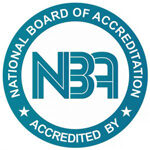Research
IIHMR Bangalore
Completed Research Projects - 2021
Project Title
Technical Support to Accelerate Promotion of COVID-19 Appropriate Behaviours (CAB) for the State of Karnataka
Partner
UNICEF, Hyderabad
Project Team
IIHMR – B Technical Team
Dr. Usha Manjunath - Programme Director/SBCC Technical Support
Dr. Chethana H S - Health Consultant
Dr. R. Sarala - HR/Team Building
Project Operations and Liaising
State Level Team
Dr. Deepashree M R - State Coordinator
Dr. Jyoti Vijay - Monitoring and Evaluation
Duration
September 2021 to April 2022 (Phase 1)
Location
31 Districts of Karnataka through deployment
of District SBCC Coordinators and Regional
Coordinators
About The Project
COVID 19 pandemic has led to unparalleled and unforeseen challenges requiring collective action and support from all. While all necessary measures to fight the spread of Novel Corona Virus (COVID 19) are being effectively led by the Central Government, State Governments and there is a need to reinforce the importance of preventive measures and practices in a sustained manner, to deal with the disease over the long run. To complement the efforts of the Govt. of Karnataka and strengthen technical support for the acceleration of COVID-19 Appropriate Behaviours (CAB) and Vaccination efforts through a focus on Social Behaviour Change Communication and Risk Communication and Community Engagement(RCCE), UNICEF Hyderabad Field Office has partnered with Institute of Health Management and Research (IIHMR), Bangalore from August 2021, for the deployment of District SBCC Coordinators who will coordinate and collaborate the CAB and Vaccine efforts of the various departments at the district level. COVID-19 Specific Emergency Response: The communities and families in the districts of Karnataka have the knowledge and skills to protect themselves from the direct and indirect impact of COVID-19. COVID-19 Sensitive Emergency Response – The communities adopt gender-responsive practices for the prevention of anemia, addressing Routine Immunization inequities and community-based management of SAM children.
COVID-19 Specific Emergency Response: The communities and families in the districts of Karnataka have the knowledge and skills to protect themselves from the direct and indirect impact of COVID-19. COVID-19 Sensitive Emergency Response – The communities adopt gender-responsive practices for the prevention of anemia, addressing Routine Immunization inequities and community-based management of SAM children.
COVID-19 Specific Emergency Response – The communities and families in the districts of Karnataka have the knowledge and skills to protect themselves from the direct and indirect impact of COVID-19. COVID-19 Sensitive Emergency Response – The communities adopt gender-responsive practices for the prevention of anemia, addressing Routine Immunization inequities and community-based management of SAM children.
COVID-19 Sensitive Emergency Response – The communities adopt gender-responsive practices for the prevention of anemia, addressing Routine Immunization inequities and community-based management of SAM children.
Project Title
Assessment of the Current Burden of Service Delivery on ASHAs and the potential role of Multipurpose Health Worker in task sharing in Karnataka.
Funding Agency
India Health Systems Collaborative (IIHSC)
Project Team
Dr. R. Sarala (PI), Dr. Usha Manjunath
Dr. Deepashree M R, Mr. Rajendra. D
Dr. Mythrishree
Location
Koppal, Mysore and Raichur districts of Karnataka
India
About The Project
IHSC was conceived as a platform to help bridge the gap between academia and policy practitioners. IHSC’s vision and mandate are based on the necessity to achieve two key objectives. The first is to provide the necessary evidence for decision-makers on policy questions that are critical to India’s health system, and the second is to foster a sustainable network of health system researchers that will work in a consortium structure to develop a more systems-based approach to health research and reforms in India. Several studies suggest that ASHAs are often overstretched given their expanding mandate under NHM, which could result in gaps in the delivery of services owing to the number of tasks they are expected to cover, with task sharing being seen as a possible solution to tackle this issue.
- To assess the current burden of service provision of ASHAs
- To assess the impact of service provisions on the quality of life of ASHA workers
- To suggest the potential role and structured task-shifting training strategies for the revival and strengthening of multi-purpose health workers to effectively manage emerging infectious and non-communicable diseases at the community level
A multi-stage random sampling design and mixed methodology were adopted for the study. The primary data was collected through quantitative and qualitative methods of data collection. i) Quantitative method: a) Task diary: Documentation of various activities and time spent for each activity in a day/week b) Quality of life: WHO-QOLBREF was adopted ii) Qualitative method: a) Small focussed group discussion consisting of 3 to 5 members b) In-depth Interviews (IDIs) c) Participant observation and d) Key Informant Interviews (KIIs) with various stakeholders at sector, block, district and state level was carried out. The data was analysed using NVivo Software.
Project Title
Formative and Impact Assessment on Svasti-nutrition for Women and Children Programme in Kolar and Tumkur Districts, Karnataka
Funding Agency
Bhoruka Charitable Trust (BCT)
Project Team
Dr. Usha Manjunath, Dr. Sarala. R
Dr. Gyan Chandra Kashyap
Duration
January 2020 to Dec 2021
Location
Kolar and Tumkur districts of Karnataka
About The Project
Bhoruka Charitable Trust and Spirulina Foundation have commenced this study to address a critical issue related to women and child health in Karnataka’s Kolar and Tumkur districts.The programme aimed to improve the nutrition level and the overall health of young children, adolescent girls, and lactating mothers by regularly providing Spirulina Chickies.Institute of Health Management Research (IIHMR), Bangalore, is a nodal agency for conducting baseline and end-line surveys to address the key issues related to the health and nutrition of children and adolescent girls.
The objective of the study is to i) Understand the knowledge and practice related to nutrition and anemia among children, adolescents, and lactating mothers.ii) To assess the nutritional status and anemia among children, adolescents, and lactating mothers and iii) To assess the programme’s impact on nutritional status and anemia among children, adolescents, and lactating mothers.The study has been carried out for 7 months, viz., three and a half months for each formative and impact assessment in Kolar and Tumkur districts, Karnataka.
A cross-sectional study has been adopted to carry out the present study. The study has been carried out in 11 villages from 5 talukas of Kolar District.A total of 1000 is the sample size for each formative and impact assessment, i.e., 2200 covering children (0-12 years), adolescent girls (13-18 years), and lactating mothers.In Tumkur, 106 villages (108 AWCs in 9 circles) have been selected. The total sample size for each formative and impact assessment is 1500, covering children from 6 months to 6 years. Clinical & Biometric information such as height, weight, and haemoglobin have been collected from the selected participants of the study.
Project Title
Early Childhood Care and Development (ECCD) and Comprehensive Health Centre in Urban Slums of Bangalore
Funding Agency
HCL Foundation
Project Team
Dr. Usha Manjunath (Project Director)
Dr. R. Sarala (Project Coordinator)
Dr. Deepashree, Ms. Ramya.T.Karur,
Ms. Kokila
Location
Maya Bazaar & Anandapuram (Bangalore)
About The Project
This study focuses on underprivileged communities living in Bangalore’s urban slums, namely Maya Bazaar and Anandapuram. Early Childhood Care & Development (ECCD) centers (3 creches) have been set up under this project to guide and assist the development of five faculties (i.e., cognitive, language, physical, mote personal, social, and emotional) among 0-6 years children. In addition, the study created awareness about various health-related issues such as ANC, PNC, delivery, family planning, menstrual hygiene, nutrition and diet, hygiene/wash, NCDs, abuse and government health schemes among reproductive age group women, pregnant women, men, adolescent boys, and girls. Also, the study supported the community members in accessing various government health schemes and services through liaison with various healthcare stakeholders, especially frontline workers. Various activities, viz., health camps, low-cost nutrition food preparation workshops for women, and competitions for children, were organised as part of the study.






